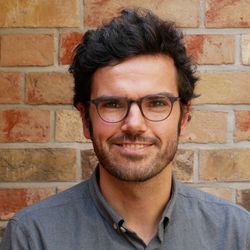Projects of Johannes Rupp
Participation process for a precautionary climate adaptation strategy of the Federal Government Designing measurable targets for the further development of the German Climate Adaptation Strategy (DAS)
Analysis and use of climate services Capacity-building, education and networking for climate adaptation
Landgewinn – Energy system analysis of decarbonization strategies in the agricultural sector Economic-ecological assessment of biochar and an additional agricultural decarbonization technology
Green City of the Future II - Climate-Resilient Neighborhoods in a Growing City Implementation and stabilization phase
Priorities of a Bioeconomy Strategy for the Federal State of Brandenburg
Testing of a participation portfolio for optimizing participatory processes for the further development of the German Strategy of Adaptation to Climate Change (DAS)
Green City of the Future – Climate-Resilient Neighborhoods in a Growing City Subproject: Analysis of social and economic aspects of green infrastructures
Change in perspective Bioeconomy – for more sustainability A dialogue project in the science year 2020/2021
Development of a service to support the adaptation to climate change (KlimAdapt) by extending the knowledge base, specification and implementation support
Designetz: A Modular Concept for the Energy Transition From Isolated Solutions to an Efficient Energy System of the Future
Sustainable bioeconomy in Brandenburg – Examples of climate-friendly and environmentally friendly regional value chains
Future Potentials of a Rural Bio-Economy Analysis and Assessment of Value Chains of a Multiple and Cascade Based Usage of Renewable Raw Resources (Phase I)
Cooperation and participation process for the further development of the German Strategy for Adaptation to Climate Change (participation process DAS)
Needs and Opportunities for Climate Resilient and Sustainable Design of National and Cross-Border Infrastructure
Added Value of a Regional Energy Transition in the Lusatian and Rhenish Lignite Mining Regions Value-Added and Employment Potentials by the Expansion of Photovoltaics and Wind Energy
Determination of the Value-Added and Employment Effects in Three Selected Bioenergy Regions
Climate Adaptation Concept Munich
Adaptating to the Impacts of Climate Change in Berlin (AFOK Berlin)
Berlin's Energy and Climate Protection Program
Climate change in Germany: Adaptive capacity and tranformation paths towards a resilient society
RE-Regions: Socio-Ecology of Self-Sufficiency The conditions for and diffusion of concepts for the complete energy supply of municipalities and regions on the base of renewables - main focus on bioenergy
Feasibility Study "Carbon neutral Berlin 2050"
Value-Added and Employment Effects by the Expansion of Renewable Energies








